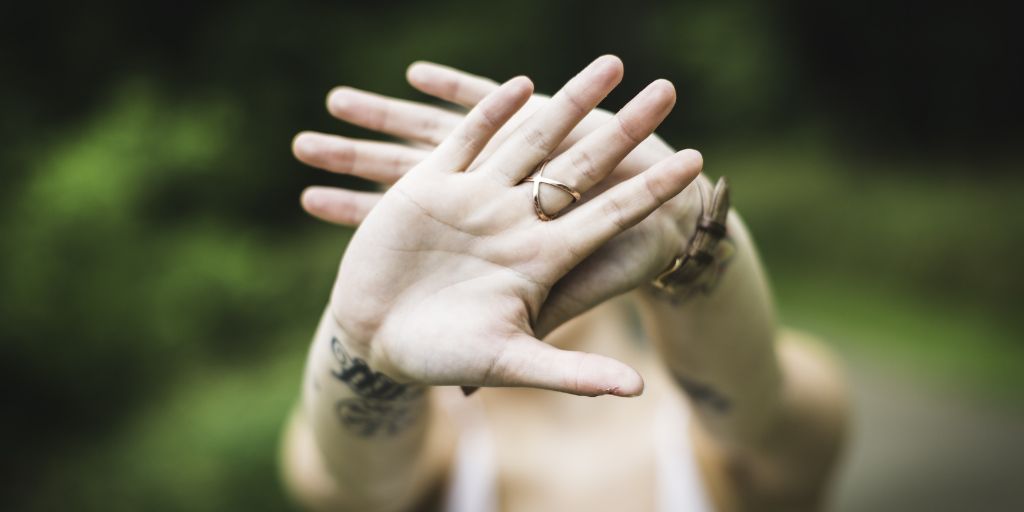We tend to associate our own or others’ baggage as a bad thing. We often use it to describe other people, characteristically to describe why we don’t want to be close to them. Maybe this is because we associate a person with ‘baggage’ as someone who is unstable. However, don’t we all have ‘baggage’? Does that make us all unstable?
As we get older, we get more life experience and that creates more difficult experiences. Is this about our relationship with getting older or is it about our relationship with fear around the uncomfortable? Or is that we aren’t dealing with our emotional trauma and we become unmanageable or emotional wrecks, and then people don’t want to be around us? Or, we assume they don’t want to be around us?
Perhaps we become numb and have a harder time connecting. Do we lose the desire to share ourselves with others because we’re afraid of being seen and disliked for our stories and life experiences?
Does becoming evasive make us interesting? Or are we more interesting when we do our work, unpack our pains, evolve and become able to speak our stories?
We all know it’s easier to judge someone else than it is to judge ourselves. So what does it say about us when we believe someone’s baggage is too heavy?
Using the term ‘baggage’ means we can disassociate with someone or can disconnect with their heaviness and make them less human; we can make them wrong because of what has happened in their lives.
When we feel pity for people who are going through difficult times, we imagine we are better than them because we’ve done something right in our lives that has avoided us the same experience. I’ve had friends do that to me, imagine that I have some darkness that follows me because of what I’ve been through. It doesn’t make me feel good when someone treats me like that. It makes me feel shame for being me and for having had my experiences.
When we imagine we are better than someone else,we do it to make ourselves feel more stable; we assume that if we’re more stable, then challenging situations or bad things won’t come our way. If we compare and imagine we’ve done something better in our lives then we don’t have to experience the pain we see someone else going through.
There are many excuses : I’m Sagittarius and that’s just how I am. Or, this is my personality type and this is how I show up in the world. Any excuse you make that permits you to behave poorly by using someone as a scapegoat is an example of hidden baggage. Our desire for control dissolutions our reality, and our need to be in the driver’s seat creates separation and a lack of connection.
I spoke with a 33-year old man who believed that not everyone has baggage and that maybe only certain people have baggage. But if you speak to anyone over 40 you start to realize we ALL have experienced hardship and pain.
I think sometimes we’re afraid to associate with someone who’s had challenges because we feel like we might catch them. Like we need to protect ourselves so that we don’t have to experience the same thing. As a friend in his mid-40s put it, when he sees a friend going through a hard time emotionally, their mutual friends retract and disconnect. But my friend chooses to lean in, check in and ask his friend if he’s taken his medication. He does it to help remind him that someone cares enough to help him. He doesn’t feel like he’s taking on the weight of this friend. He feels like he’s supporting him by seeing him and not pushing him away.
I think it takes a courageous and brave person to be comfortable enough with themselves to see the pain of others and not worry they might ‘catch it.’ To be able to have uncomfortable conversations shows bravery — being brave doesn’t mean you’re not scared, it means you realize that discomfort will pass and you will become softer and more resilient by showing up.
We ALL experience devastating heartache and we all hurt, a lot. There’s no way around it. But you can remain emotionally disconnected from yourself and others, or you can find a way to show up with your pain and still be OK. If you allow the balance of yin and yang, the paradox of the perception of good and bad to coexist, it doesn’t become an either/or scenario. Pain and discomfort can exist and you can still show up for yourself and others.
If our pain isn’t allowed to be present it can take control of our lives in unconscious ways. Devastating pain can look like many ways: sleeping with many people, consuming anything that makes you feel numb (social media, alcohol, drugs), judging, imagining you’re better than others, having a heightened sense of confidence, avoiding social contact — basically anything that pulls you away from being in the presence of your discomfort.
So perhaps if you’re dismissive about someone else because of your perception of their baggage, maybe it’s time to have a hard look in the mirror and see what you’re hiding from. Or ask yourself what’s so uncomfortable about their baggage?
With love
Noelle

